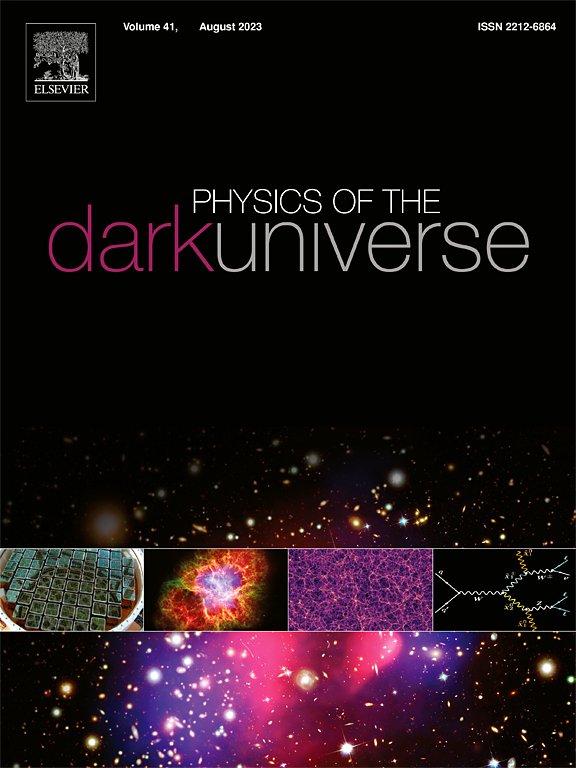Thermodynamical properties of nonsingular universe
IF 6.4
2区 物理与天体物理
Q1 ASTRONOMY & ASTROPHYSICS
引用次数: 0
Abstract
We disclose the thermodynamical properties of the apparent horizon in a nonsingular universe. We take into account the zero-point length correction to the gravitational potential and derive the modified entropy expression that includes zero-point length correction terms. We apply the first law of thermodynamics on the apparent horizon as well as the emergent gravity scenario to derive the modified Friedmann equations. Further, we examine the time evolution of the total entropy, including the entropy of the apparent horizon and the matter field entropy inside the horizon and find out that the generalized second law of thermodynamics is satisfied. We also investigate the cosmological implications of the modified cosmology through zero-point length. We observe that the zero-point length correction does not change the general profile of the universe evolution, however, it shifts the time of the phase transition in a universe filled with matter and cosmological constant. We explore the age of the universe for our model and observe that the predicted age of the universe becomes larger compared to the standard cosmology. By calculating the explicit form of Ricci and Kretschmann invariants, we confirm that in our model, the initial singularity of the universe is removed. This is an expected result, because the main motivation for considering zero-point length correction in the gravitational potential is to remove singularity at the origin.
非奇异宇宙的热力学性质
我们揭示了非奇异宇宙中视界的热力学性质。我们考虑了重力势的零点长度修正,导出了包含零点长度修正项的修正熵表达式。我们应用热力学第一定律在视界和紧急重力情况下推导出修正的弗里德曼方程。进一步考察了视界内物质场熵和视界内物质场熵的总熵随时间的演化规律,得到了广义热力学第二定律的满足。我们还通过零点长度研究了修正宇宙学的宇宙学意义。我们观察到零点长度修正并不改变宇宙演化的一般轮廓,但它改变了充满物质和宇宙常数的宇宙的相变时间。我们为我们的模型探索了宇宙的年龄,并观察到与标准宇宙学相比,宇宙的预测年龄变得更大。通过计算Ricci和Kretschmann不变量的显式形式,我们确认在我们的模型中,宇宙的初始奇点被移除。这是一个预期的结果,因为在引力势中考虑零点长度修正的主要动机是消除原点的奇点。
本文章由计算机程序翻译,如有差异,请以英文原文为准。
求助全文
约1分钟内获得全文
求助全文
来源期刊

Physics of the Dark Universe
ASTRONOMY & ASTROPHYSICS-
CiteScore
9.60
自引率
7.30%
发文量
118
审稿时长
61 days
期刊介绍:
Physics of the Dark Universe is an innovative online-only journal that offers rapid publication of peer-reviewed, original research articles considered of high scientific impact.
The journal is focused on the understanding of Dark Matter, Dark Energy, Early Universe, gravitational waves and neutrinos, covering all theoretical, experimental and phenomenological aspects.
 求助内容:
求助内容: 应助结果提醒方式:
应助结果提醒方式:


